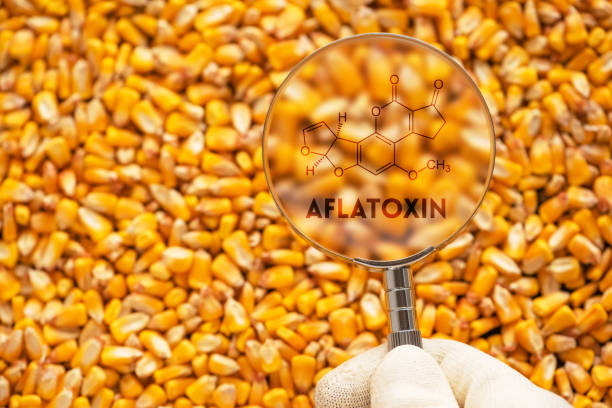By Gladys Fred Kole
Limited knowledge and information on aflatoxin by stakeholders along the value chain has been identified as one of the major factors hindering aflatoxin prevention and control within the East African Community (EAC).
This emerged during a two-day regional workshop on the status of aflatoxin prevention and control in the EAC Partner States held in Kampala, Uganda.
In a statement seen by this outlet, it is estimated that agricultural commodities account for about 65% of intra-regional trade in the EAC.
It’s further estimated that losses associated with aflatoxin contamination in Africa have escalated to US$670 million annually.
Aflatoxin also accounts for 30% of liver cancer cases in Africa.
On Saturday last week, a fresh laboratory retest carried out by the EAC experts confirmed the presence of the cancer-causing chemical aflatoxin in the Ugandan grains expelled by the South Sudan quality standards authority.
East African Community (EAC) experts in their laboratory retests confirmed the presence of high aflatoxin on the maize that the South Sudan National Bureau of Standards (SSNBS) rejected at the Nimule border.
Many lives could have been at risk of getting exposed to cancer should the cancer-causing Ugandan maize enter the country, but thanks to the National Bureau of Standards
The impounding of 62 trucks carrying questionable grains on May 15 by South Sudan caused an uproar among traders and the Uganda Bureau of Standards, which became the straw that broke the camel’s back. But little did they know the products were substandard.
“Lack of research results on the impact of aflatoxin and other mycotoxins contamination on human health, lack of equipment and other related tools for mycotoxins detection and analysis, and the low capacity of the human health staff to detect mycotoxins are some of the challenges that we have faced in Burundi with regard to the management of aflatoxin,” said Dr. Marie-Chantal Niyuhire of the Institute of Agricultural Sciences of Burundi.
However, Ms. Paloma Fernandes, the CEO of the Cereal Millers Association of Kenya (CMA), urged industry leaders to take the food safety agenda seriously.
“We don’t need to wait for the government, regulators, or activists to tell us what to do. We must always do the right thing at all times,” said Ms. Fernandes.
She called for a holistic approach to the prevention and control of aflatoxins by focusing on the entire value chain rather than the end product only; reviewing farming practices, including post-harvest handling of maize; and monitoring and enforcing adequate quality along the maize value chain.
“There is also a need to regulate transport services, wholesalers, retailers, and traders, manage supply chains to ensure good quality premix and test kits, and enhance surveillance at borders.
Preliminary results from 1,700 tons of maize valued at $2 million now indicate failed Aflatoxin-level tests in the region.




